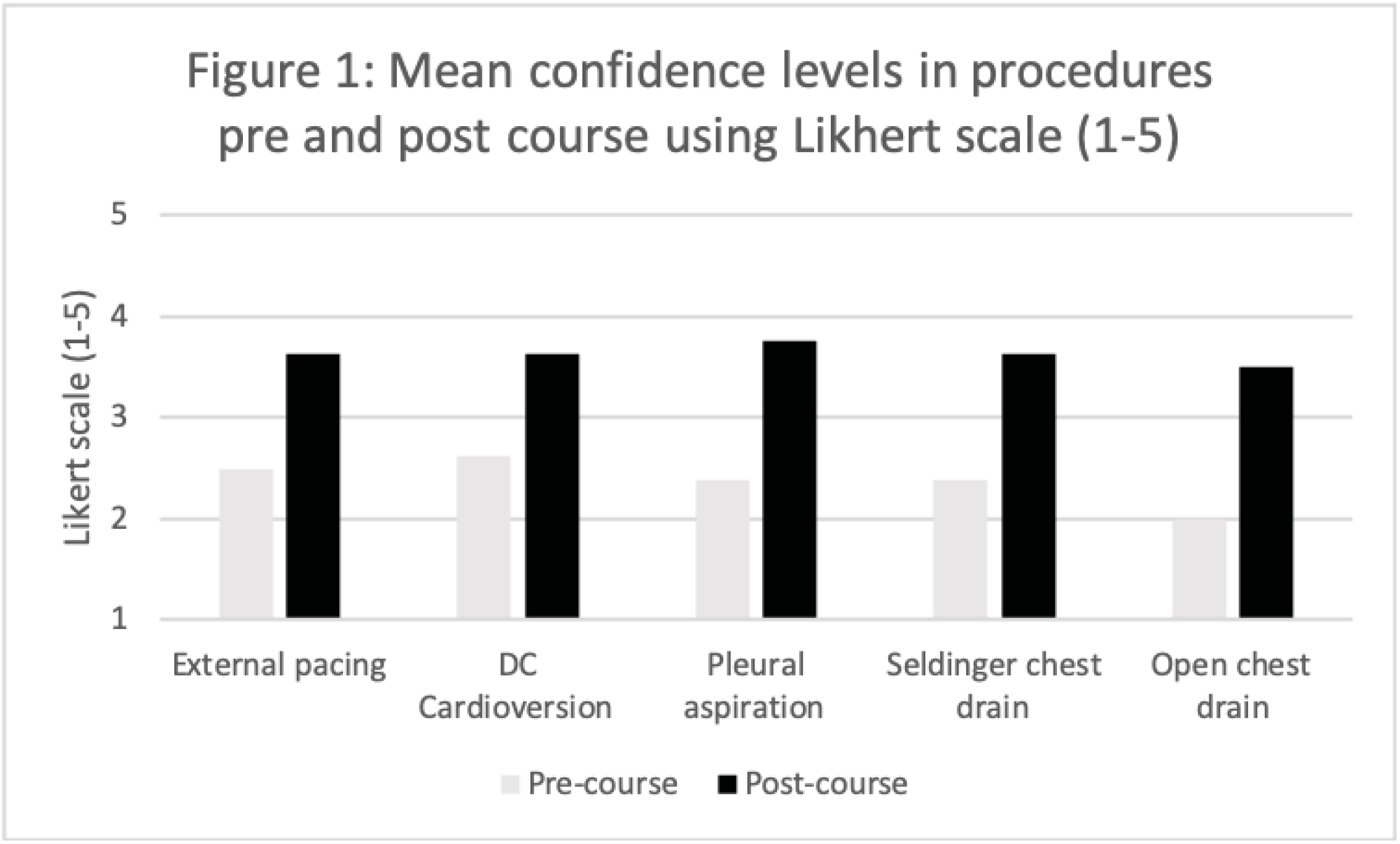
A new curriculum for Acute Common Care Stem (ACCS) trainees was introduced in 2021 and included a mandatory requirement to have specific practical assessments performed, known as Direct Observation of Procedural Skills (DOPS). These aimed to provide evidence of competence and enable progression through training. The curriculum change prompted the creation of a novel one-day skills-based course in order to ensure that all the ACCS trainees met the required level of competence. An enhanced simulation-based mastery learning method was used to ensure that trainees have the clinical knowledge to identify when future practical emergency skills are indicated and have the psychomotor skills necessary to perform these procedures safely and efficiently. This study was aimed at exploring the impact of a simulation-based mastery learning (SBML) [1] in a one-day procedural skills course.
New curriculum content was reviewed in order to establish the different practical skills required for the second year of ACCS training. Regional trainees were then sent an online survey to ask which specific procedures they would like included on a skills course. There were five procedures requested: chest drain insertion (Seldinger and open), aspiration of air, DC cardioversion, and external cardiac pacing. Meetings with the local training programme director and simulation lead assisted in the formation of the skills day. Faculty were formed by registrars and consultants in Emergency Medicine. Trainees aimed to reach a competence level that would mean they still need in hospital supervision for any future procedures. Eight ACCS trainees attended a one-day skills-based course in May 2022. The course was preceded by multiple online e-learning resources and videos. The SBML day consisted of a demonstration with deliberate practice followed by DOPS assessments using simulation and trainee-focused feedback. Anonymised pre- and post-course questionnaires were completed by all trainees containing questions surrounding their experience and confidence in performing these procedural skills.
All trainees achieved the required level of competence needed at their stage in training. Each trainee stated that their confidence levels improved in performing all five procedures after attending the course (Figure 1).


An enhanced SBML method in a one-day course enabled efficient, standardised procedural skills practice and assessment for a group of ACCS trainees. Training, practice, and assessment in necessary curricular competences were achieved together while improving the level of confidence in trainees performing these procedures.
1. Scahill E, Oliver N, Tallentire V, Edgar S, Tiernan J. An enhanced approach to simulation-based mastery learning: optimising the educational impact of a novel, National Postgraduate Medical Boot Camp. Advances in Simulation. 2021;6(1).